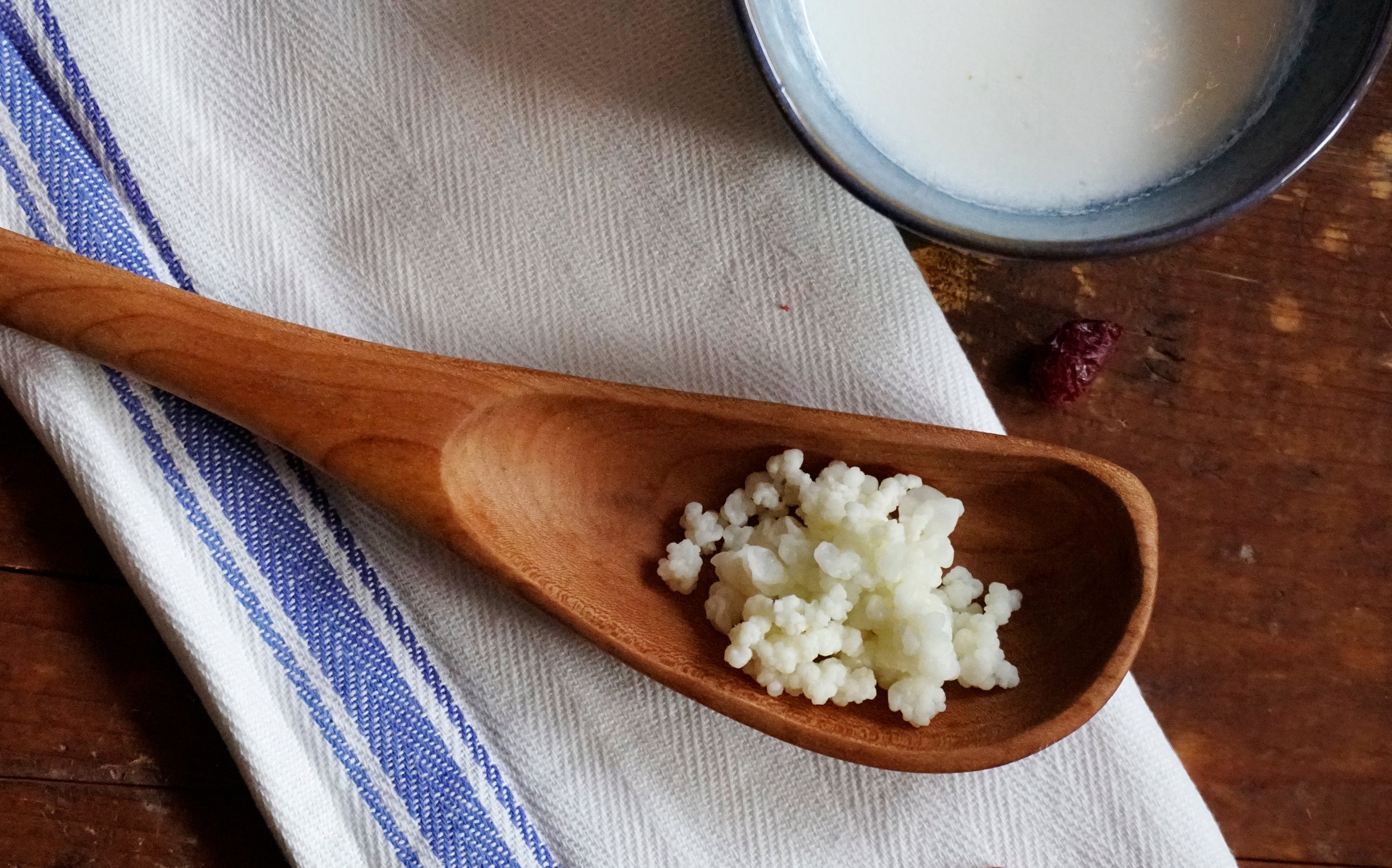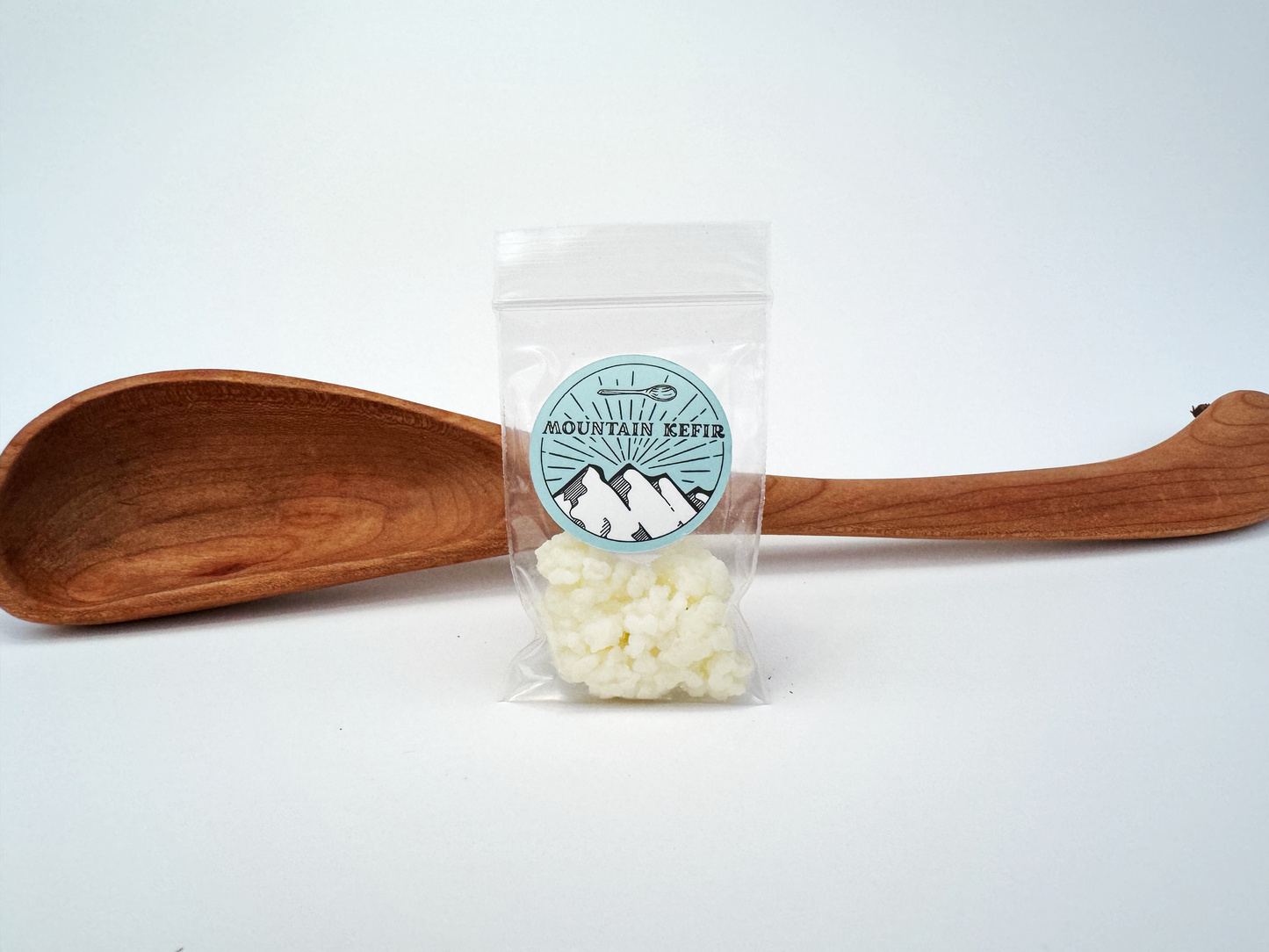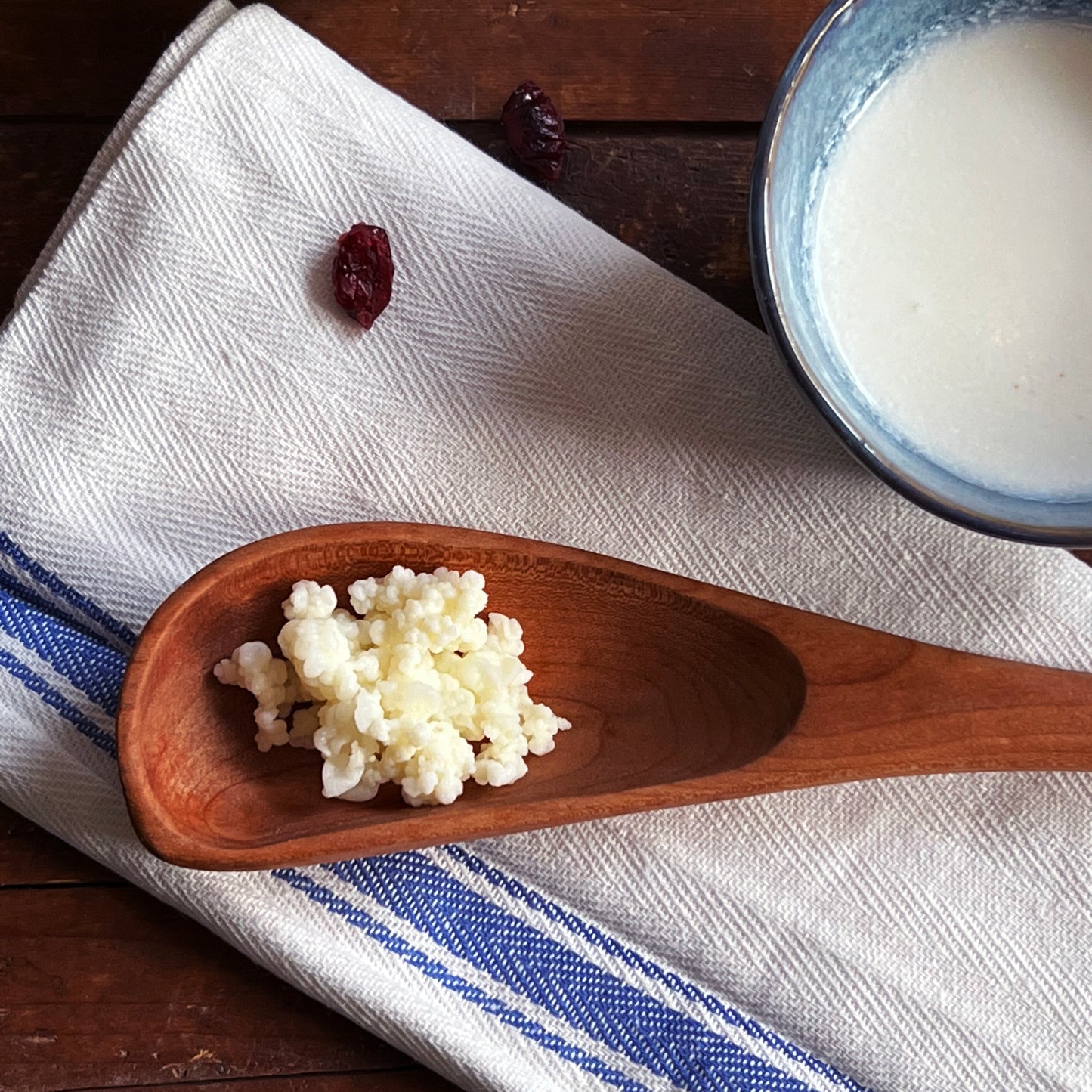
About Kefir
Everything you need to know about the history and benefits of heirloom milk kefir.
A long history of health benefits...
Kefir (pronounced ke-feer) is a popular probiotic drink that is very similar to yogurt and recommended for its health benefits. Enjoyed around the world for thousands of years, kefir is made by adding a symbiotic culture of bacteria and yeast into milk to start the fermentation process.

Kefir grains are not grains like wheat or rice – they look like tiny, squishy cauliflowers and are made up of good bacteria and yeast. We think they’re actually kinda cute! When added to milk, the kefir grains feed on the natural sugars in the milk to turn it into kefir.
As the health benefits of fermented foods become more well-known, you might find yourself trying to choose between the many fantastic ferments, from sourdough to sauerkraut and yogurt or kimchi. And our answer to that is... don't!! Variety is good and they're all amazing and delicious and increasingly accessible through local makers (like our friends at Kensington Sourdough!!) and supermarkets or to make at home. BUT what we can tell you is...
The Many Reasons Why You Should DEFINITELY Be Making Homemade Kefir:
1. Deliciousness
First of all, kefir is delicious! It tastes similar to yogurt, though it can be a little more tart or tangy. The longer it ferments, the more tart your kefir can get. It can even taste slightly carbonated or fizzy as the cultures produce gasses while they consume the milk. When you make your own kefir, you can tailor your ratios to create your preferred version of it!
2. Better for your health
Kefir is renowned for its rich nutritional profile. And, as usual, homemade is best! Due to processing methods, store-bought kefir contains fewer healthy bacteria and probiotics compared to what you make at home with your own kefir grains. A German study shows that homemade kefir contains wayyyy more good bacteria and probiotics than store-bought kefir. This is because commercial kefirs are made with artificial microbial mixtures rather than through traditional fermentation processes.
And while it tastes similar to yogurt, kefir has 3x more probiotics than all yogurts!
Homemade kefir is packed with:
- Probiotics: These beneficial bacteria support gut health and boost the immune system.
- Vitamins: Particularly B vitamins such as B12 and B2, which aid in energy production and overall cellular function
- Minerals: Including calcium, magnesium, and phosphorus, essential for bone health.
- Protein: Kefir contains casein and whey proteins, which are easily digestible and provide essential amino acids.
Don't take our word for it! If you're like us (nerdy but not nerdy enough to fulfill our parents' dreams by becoming a doctor), we encourage you to check out all the research showing that kefir can aid with digestive health, lower cholesterol, help control blood sugar, improve bone health and more.
3. It's SO easy to do...
Ok, making kefir might sound a little intimidating at first... We realize that we are asking you to leave milk out on the counter for 24 hours, which goes against all of our food safety instincts. But trust us! Your helpful little kefir cultures are great at what they do and happy to do 99% of the work. All they ask of you is a quick 3-minute daily routine to keep them fed and, in return, they will provide you with a never ending supply of fresh kefir.
At Mountain Kefir, we are fermenting nerds! We make our own yogurt and sourdough, and have even tried kimchi... When life gets chaotic, we find that kefir is the easiest to maintain, without any need for heating the milk (like some yogurts) or turning on the oven (looking at you, sourdough).
4. Tried and tested for thousands of years

The ancestors of these hardy grains go back thousands of years and could be found throughout the ancient world – and were particularly popular in Europe’s Caucasus mountain region. There is even evidence of kefir dating back to the Bronze age!
Without refrigerators, fermentation was the only way to keep milk fresh so families would pass along their precious kefir grains as heirlooms, keeping only the strongest and most delicious strains alive. What is even more interesting is that kefir grains can’t be artificially produced! This means that the kefir grains you’re receiving are direct descendants of those first cultures.
Mountain Kefir
Organic Milk Kefir Grains
Share



